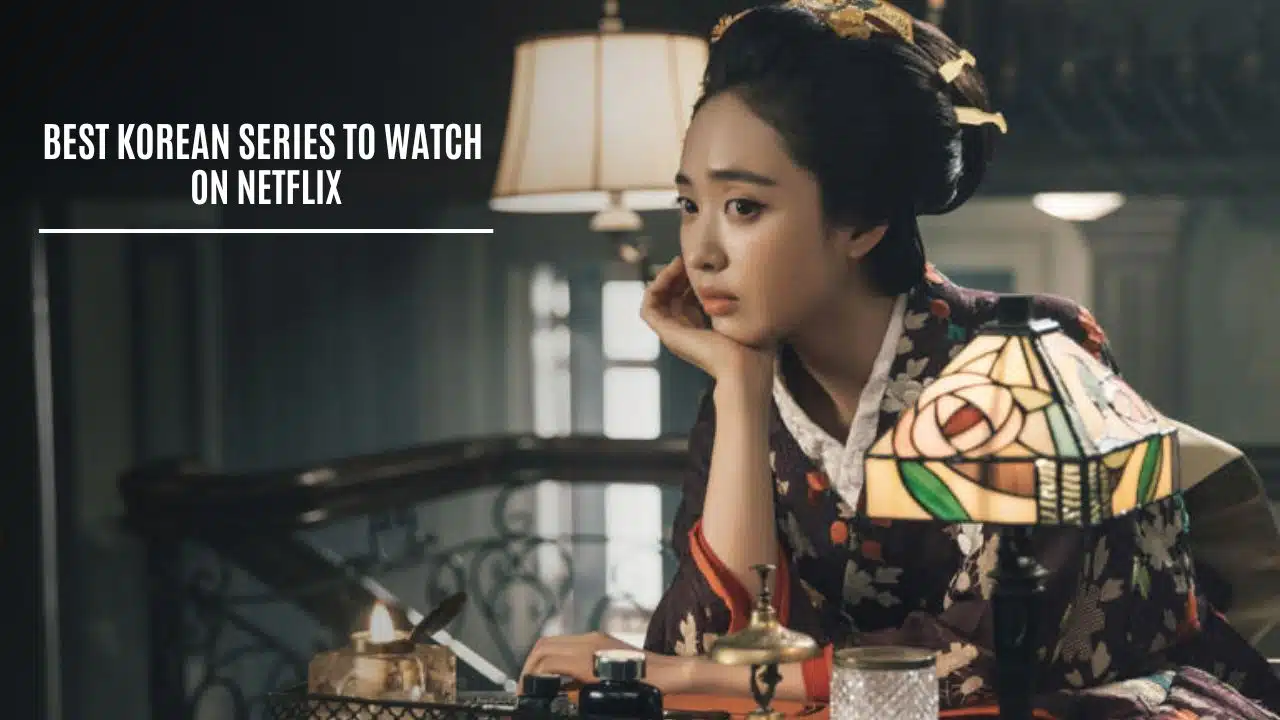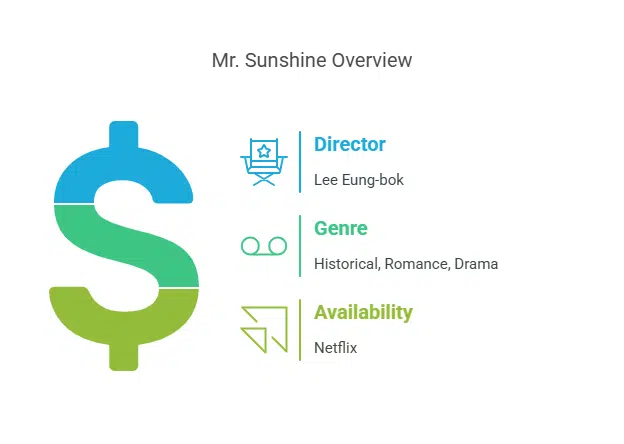Over the past decade, Korean TV series (K-dramas) have skyrocketed in popularity across the globe, captivating audiences with their rich storytelling, top-tier acting, and high production values. Just like anime in Japan, K-dramas have carved a cultural niche in the global entertainment landscape—ranging from historical epics and slice-of-life dramas to psychological thrillers and science fiction.
Below are five standout Korean series available on Netflix, each offering a unique experience that keeps viewers coming back for more. These titles are not only critically acclaimed but also fan favorites for their emotional depth, gripping plots, and cinematic beauty.
1. Mr. Sunshine (2018)
Director: Lee Eung-bok
Genre: Historical, Romance, Drama
Available on: Netflix
A Powerful Tale of Patriotism and Forbidden Love
Set against the backdrop of late 19th to early 20th-century Joseon (pre-modern Korea), Mr. Sunshine tells the riveting story of Eugene Choi, a Korean boy born into slavery who escapes to the United States during the 1871 U.S. expedition to Korea. Years later, he returns as a U.S. Marine officer to a homeland facing foreign imperialism and internal betrayal.
The series stars Lee Byung-hun and Kim Tae-ri, and offers a compelling narrative that blends historical realism with heart-wrenching romance. Through gorgeously designed period costumes and elaborate sets, Mr. Sunshine authentically recreates a critical period in Korean history.
The show’s exploration of identity, national pride, and sacrifice is deeply moving, making it much more than just a historical drama. Its production value and storytelling rival many Western blockbusters, and it’s widely praised for its emotionally resonant dialogue and visuals.
2. My Name (2021)
Director: Kim Jin-min
Genre: Crime, Thriller, Action
Available on: Netflix
A Dark, Gripping Revenge Thriller Led by a Strong Female Protagonist
In My Name, Han So-hee delivers a powerful performance as Yoon Ji-woo, a woman seeking revenge after witnessing her father’s brutal murder. Her path for justice is anything but straightforward. She joins a powerful criminal organization and then goes undercover in the police force to track down the killer, risking her life at every turn.
This Netflix original is tightly paced, full of action, and explores the price of vengeance and loss. The fight choreography is especially notable, with gritty hand-to-hand combat scenes that feel more real than stylized. The noir-like cinematography and moody soundtrack amplify the tension in every scene.
What sets My Name apart is its unapologetic portrayal of grief, justice, and identity. As Ji-woo’s two worlds—cop and criminal—collide, viewers are left questioning who can truly be trusted.
3. Reply 1988 (2015)
Director: Shin Won-ho
Genre: Family, Coming-of-Age, Comedy, Drama
Available on: Netflix
A Heartwarming Slice-of-Life Journey into 1980s Seoul
Unlike most K-dramas driven by mystery or romance, Reply 1988 offers a beautifully nostalgic window into ordinary Korean family life in the 1980s. The story revolves around five childhood friends—Deok-seon, Jung-hwan, Sun-woo, Dong-ryong, and Taek—and their tightly-knit families living in the same neighborhood in Ssangmun-dong, Seoul.
The series masterfully weaves humor, warmth, and emotional moments into its narrative. It addresses everything from first love, financial hardship, parental sacrifice, to societal change, all while making you laugh and cry in equal measure.
Its attention to cultural details—such as cassette tapes, walkmans, Korean street food, and community games—brings the era alive for both domestic and international viewers.
4. I’m Not a Robot (2017)
Director: Jung Dae-yoon
Genre: Romantic Comedy, Sci-Fi, Drama
Available on: Netflix
A Whimsical Romance with Sci-Fi Heart and Human Truths
This charming drama follows Kim Min-kyu (Yoo Seung-ho), a brilliant but isolated man suffering from a rare allergy to human contact, leading to a completely secluded lifestyle. His world changes when he meets Jo Ji-ah (Chae Soo-bin), a woman pretending to be a humanoid robot as part of a high-tech experiment.
While the premise might sound quirky, the series dives into surprisingly serious topics like emotional trauma, trust issues, and the fear of intimacy. The story is not just about romance, but about healing and rediscovering human connection in an age of technology.
It’s lighthearted at times, but beneath the surface, it asks big questions about what it means to be human, the ethics of AI, and the power of vulnerability.
5. Pinocchio (2014)
Director: Jo Soo-won
Genre: Romance, Drama, Political Commentary
Available on: Netflix
A Media Drama with a Moral Compass
In Pinocchio, Lee Jong-suk plays Choi Dal-po, a passionate but misunderstood young man with a tragic past. His life takes a turn when he becomes a journalist—ironically, the same profession that once destroyed his family’s reputation due to false reporting. Alongside him is Choi In-ha (Park Shin-hye), who suffers from a fictional “Pinocchio syndrome,” which causes her to hiccup whenever she lies.
The series critically examines the power and pitfalls of journalism, media ethics, and the role of truth in public discourse. It’s a mix of romance and mystery, with emotional arcs that feel timely and relevant, especially in today’s age of misinformation.
Pinocchio encourages viewers to think deeply about how news is constructed, consumed, and manipulated—and how ordinary people can resist systemic pressures to stay honest.
Takeaways
Korean dramas have become a global storytelling powerhouse, and for good reason. With their emotionally rich plots, multi-dimensional characters, and a dedication to visual and narrative quality, these series transcend cultural and language barriers. Whether it’s the historical authenticity of Mr. Sunshine, the dark, adrenaline-filled quest for justice in My Name, the nostalgic warmth of Reply 1988, the introspective look at human connection in I’m Not a Robot, or the ethical dilemmas faced in Pinocchio—each series offers far more than surface-level entertainment.
One of the most remarkable aspects of K-dramas is how they blend genres effortlessly. A single show often includes romance, suspense, social commentary, and humor, making each viewing experience layered and immersive. Beyond the plotlines, they also tackle deeply human themes: trauma, love, resilience, truth, identity, and justice—making the stories incredibly relatable regardless of where you’re from.
Moreover, Korean series are increasingly setting benchmarks in cinematography, production design, and soundtrack composition, rivaling some of the best global television content. The growth of streaming platforms like Netflix, which actively invests in Korean originals, has only accelerated their reach, allowing millions of viewers worldwide to discover stories they otherwise wouldn’t have had access to.





































